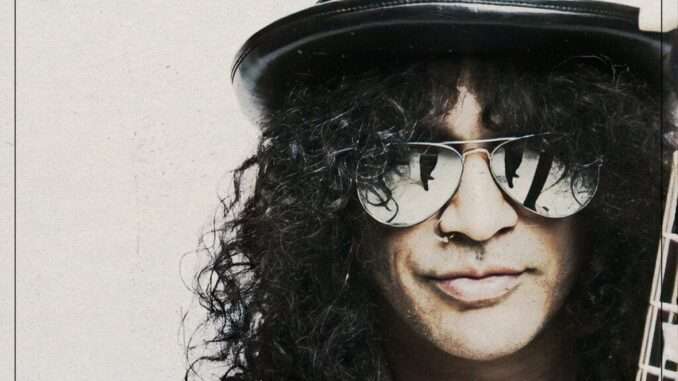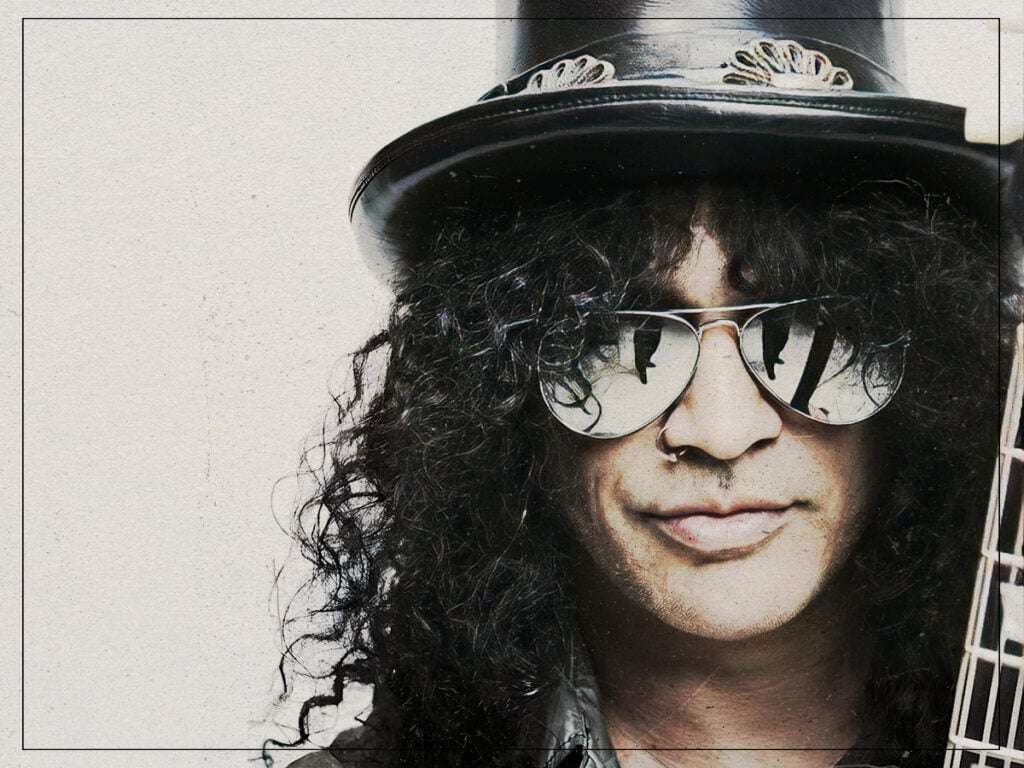
Slash was never the type of guitarist to be pigeonholed into one specific genre or style for his entire career. Known for his defining contributions to Guns N’ Roses, the iconic guitarist could have easily rested on his laurels, continuing to perform the grandiose epics that defined the band’s monumental moments. However, what truly set Slash apart from many of his peers was his eclectic musical tastes and his constant drive to explore different facets of rock and roll. He wasn’t content staying in the comfort zone of his past successes—after all, by the time of his solo work, he’d already collaborated with legendary artists like Bob Dylan, Ray Charles, and Carole King. If the world’s most talented musicians were eager to work with him, why not flip the script and have them come to him instead?
Slash’s self-titled debut album was a bold move—inviting a roster of diverse collaborators while still maintaining his unique voice. The album could have easily backfired, but the risk paid off in spades. Every guest, from rock icons to pop stars, brought their A-game, contributing to an album that explored various sonic landscapes, from hard rock anthems to melodic pop ballads. Slash’s immense star power and recognizable playing style ensured that listeners would know it was him, even if he didn’t need to play more than a few notes.
An Album of Eclectic Collaborations
The album was a musical smorgasbord, showcasing Slash’s versatility and how effortlessly he could adapt his signature style to a wide range of genres. For instance,
On the other hand, songs like “Nothing to Say,” with M. Shadows of Avenged Sevenfold, provide evidence that Slash was no stranger to metal. The track features a thunderous, machine-gun riff that could have easily belonged to Metallica, showcasing the guitarist’s adaptability and his commitment to pushing musical boundaries. While some might have thought of Slash as solely a hard rock or classic rock figure, his versatility as a musician comes through loud and clear.
But it wasn’t all about hard rock and metal. One of the standout moments of the album is “Promise,” which features an astonishing vocal performance from Chris Cornell. His voice, paired with Slash’s soaring guitar work, creates a track that leans into the pop-rock realm without sacrificing the integrity of either artist’s style. There’s a certain magic in how Slash draws out the best in his collaborators, never overshadowing them, but instead, finding the perfect musical synergy.
One of the album’s surprises is “Gotten,” featuring Maroon 5’s Adam Levine. While the song might veer a bit too close to safe radio-rock territory, it still showcases Levine’s undeniable vocal talent, paired with Slash’s signature riffs. It’s a catchy tune, if not a radical departure from what you might expect from a mainstream pop collaboration, but it works.
The Unexpected Gems
Perhaps one of the most delightful surprises of the record is the track “Beautiful Dangerous,” which features Fergie. Known for her pop hits with the Black Eyed Peas, Fergie’s gravelly vocals on this song lend a raw edge to the otherwise smooth pop landscape she’s typically associated with. She matches Slash’s intensity note-for-note, making the track a standout, proving that Fergie’s vocal prowess wasn’t just confined to the charts. In fact, it’s almost as if Fergie could have easily stepped in for Axl Rose at a Guns N’ Roses reunion show if necessary—her voice would have fit right in with Slash’s legendary riffs.
It’s also worth noting the track “By the Sword,” which features Andrew Stockdale of Wolfmother. While Wolfmother is often criticized for sounding like a Led Zeppelin knockoff, Slash managed to capture Stockdale’s signature sound and turn it into something fresh. The song doesn’t feel like a mere pastiche of ‘70s rock, but rather a reimagined piece that still pays homage to the classic rock era without being trapped in it.
The Myles Kennedy Factor
While Slash’s collaborations were certainly impressive, it’s impossible to ignore the musical chemistry between him and Myles Kennedy, the frontman of Alter Bridge. Their collaborations on “Back from Cali” and “Starlight” stand out not only for their hard rock intensity but also for the emotional depth that Kennedy’s voice adds to the songs. Together, they created the kind of magic that many hoped for from Velvet Revolver—a band that, while great, never fully captured the magic of their collective individual talents. The two clearly have a symbiotic relationship, and it’s evident that Slash found something special in Kennedy’s voice and style.
### What Could Have Been
Slash’s self-titled debut wasn’t without its moments of what-ifs. “Saint is a Sinner Too,” a track featuring Rocco DeLuca, is a fantastic song that could have easily stood out as one of the album’s highlights. However, the real intrigue lies in the original plan to have Thom Yorke of Radiohead sing the track. Had that come to fruition, it could have been one of the most unexpected and fascinating collaborations in recent rock history, offering listeners a glimpse of Yorke’s voice in a completely different context—working with one of rock’s greatest guitarists, no less.
A Launchpad for More
While the album served as an excellent launching pad for what would later become Slash’s solo band with Myles Kennedy and The Conspirators, it’s hard to ignore how unique the experience was. Slash’s debut felt like a one-off exploration of what could happen when you bring together a variety of talents and disregard traditional boundaries. It was a celebration of rock and roll’s past, present, and future.
In the end, “Slash” was more than just an album—it was a statement. It wasn’t about rules or sticking to a single genre. It was about creativity, about bringing together a diverse group of musicians to explore the endless possibilities of rock and roll. If there’s one thing that Slash proved with his debut solo album, it’s that he’s not just a guitar icon—he’s an artist unafraid to push boundaries and embrace the unexpected.
Leave a Reply